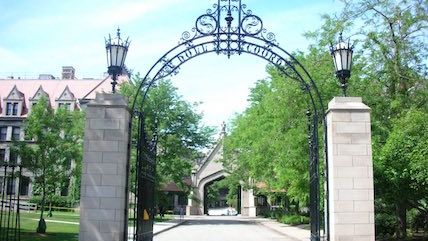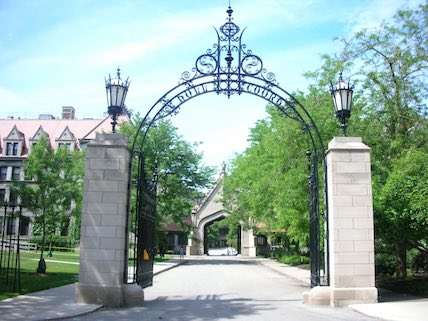Critics of U. Chicago Say Trigger Warnings Aren't Mandatory. Here's Proof They're Wrong.
Drexel University, among other schools, seems to require trigger warnings when it comes to sex and gender.


The University of Chicago's statement to incoming students decrying trigger warnings, safe spaces, and speaker dis-invitations generated much praise from supporters of free expression on campus—but also significant criticism from those who say trigger warnings just aren't that big of a deal.
Central to the pro-trigger warning argument is an assertion—made by The New Republic's Jeet Heer and CUNY professor Angus Johnson—that their use isn't mandatory: administrators don't force academics to warn their students about potentially triggering course content. It's up to the educators themselves to decide what level of protection works for their classrooms and their students.
"There's no college in the country where profs are required to give trigger warnings," observed Johnson.
But is that true? The Foundation for Individual Rights in Education's Samantha Harris has discovered a policy at several colleges—Drexel University, most notably—that appears to obligate teachers to use trigger warnings.
Drexel's sexual misconduct policy defines gender-based harassment in incredibly broad terms: it includes "unwanted or inappropriate" remarks, "humor and jokes about sex," "suggestive comments," and "pictures" that degrade a person or gender group. From a free expression standpoint, this is worrisome enough on its own. But the policy also includes this note: "It is expected that instructors will offer appropriate warning and accommodation regarding the introduction of explicit and triggering materials used."
It is expected. Not requested, or preferred. Expected. On its face, this policy certainly seems to require professors to warn students about forthcoming "triggering" content in class. The policy does not make clear what kind of potentially traumatic material it has in mind, although its expansive definition of sexual harassment suggests to me that just about anything having to do with sex might qualify.
It's not just Drexel.
"Identical language can be found in sexual misconduct policies at Bay Path University, Colby-Sawyer College, North Iowa Area Community College, and St. Vincent's College," wrote Harris. "And these are just the schools that phrase their requirement in the same terms; there may be others out there, as well."
On Twitter, Johnson told me that Harris's finding was interesting. "I'm not sure I'd call it a mandate, but interesting," he wrote.
In any case, does this revelation not strengthen the case for Chicago's letter? Chicago wants its incoming students to know that they should not expect professors to offer protection from touchy subjects. As it turns out, there are other educational institutions that obligate academics to tread very carefully when addressing a wide variety of sex-related subjects—that prioritize the emotional comfort of students.
Chicago's letter, then, was its way of saying we're not one of them.


Show Comments (67)